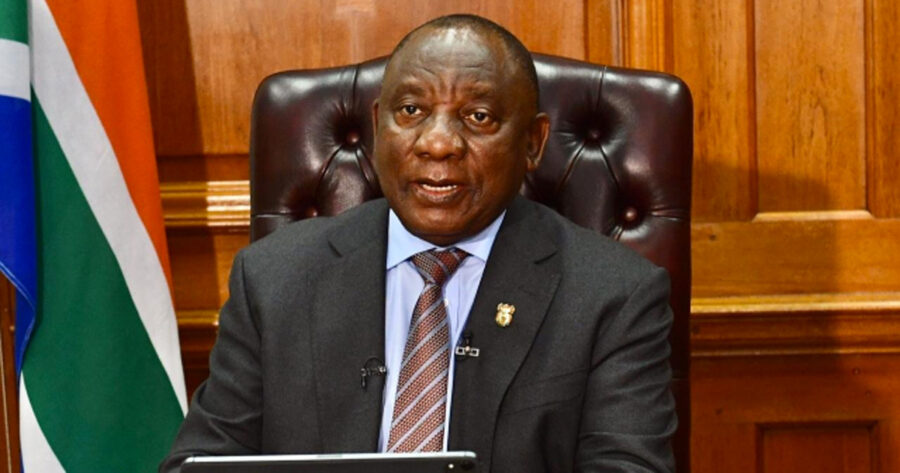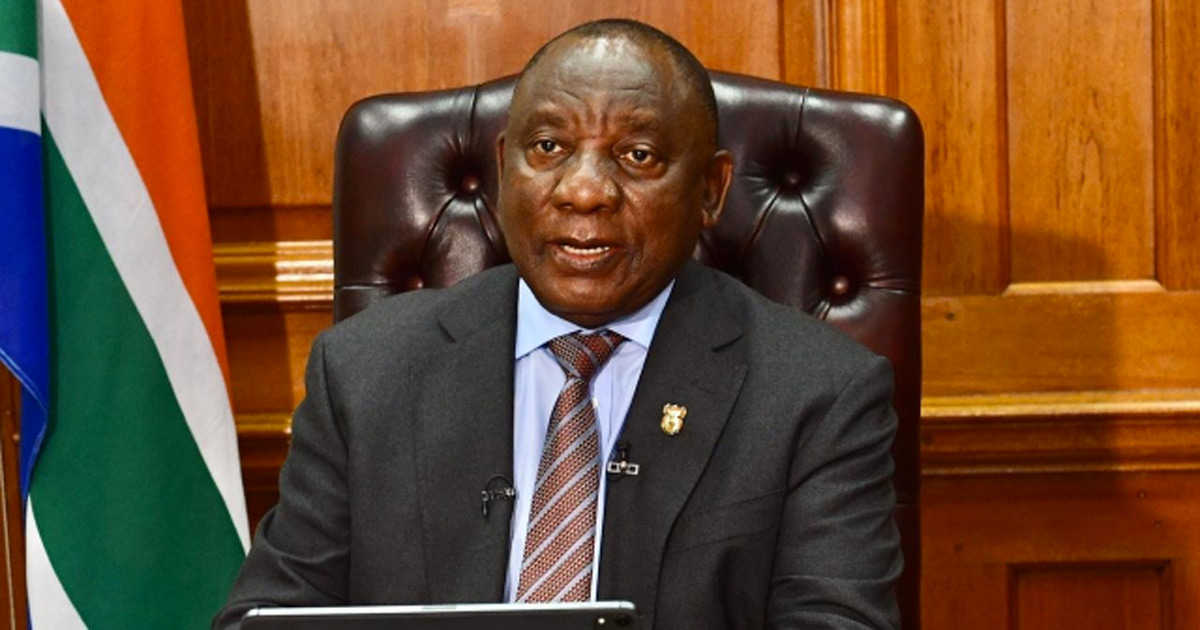
Land Borders Close as South Africa Remains on Adjusted Level 3 Lockdown
As South Africa battles the second wave of the Coronavirus pandemic, President Cyril Ramaphosa has announced the country will remain on Adjusted Alert Level 3 Lockdown. The country has been on Adjusted Lockdown Alert Level 3 since December 29, when the resurgence in infections started. Addressing the nation on Monday, President Ramaphosa said it was […]

As South Africa battles the second wave of the Coronavirus pandemic, President Cyril Ramaphosa has announced the country will remain on Adjusted Alert Level 3 Lockdown.
The country has been on Adjusted Lockdown Alert Level 3 since December 29, when the resurgence in infections started.
Addressing the nation on Monday, President Ramaphosa said it was necessary for the country to remain on Level 3 until the peak of new infections has passed and the country was certain that the rate of transmission has fallen.
He revealed that the country had recorded 190 000 new infections and 4 600 related deaths since New Year’s Eve. Cumulatively, South Africa has recorded over 1.2 million infections and 33 000 related deaths since March 2020, when the country confirmed its first case.
Just over 15 000 patients are being treated in hospitals across the country. Around a third of all COVID-19 patients in hospitals are on oxygen.
“There is an intensive focus in our health facilities on increasing oxygen supply and activating field hospital beds,” said the President, adding that additional vacant posts were being filled. Beyond this, personal protective equipment stocks are being jointly monitored with the Office of Health Standards Compliance.
Increase in infections driven by Variant 501.V2
“Research undertaken by South African scientists has shown that the massive increase in infections is largely driven by a variant of the Coronavirus known as 501.v2, a variant first identified in South Africa in November,” said the President.
While most measures will remain in place, minor but significant adjustments will see the curfew extended by an hour from 9am until 5am. Additionally, the country’s 20 land border posts will be closed until 15 February. These include the six busiest border posts, which are Beitbridge, Lebombo, Maseru Bridge, Oshoek, Ficksburg and Kopfontein.
People transporting fuel, cargo and goods will be allowed to pass through the ports as will those travelling for emergency medical attention for a life-threatening condition. South African nationals, permanent residents or persons with other valid visas as well as diplomats will also be allowed to enter the country through the identified ports.
The ports will allow for the departure of foreign nationals and daily commuters from neighbouring countries who attend school in South Africa during this period.
Turning his attention to funerals, which have been described as super-spreader events, President Ramaphosa pleaded with the public to adhere to government regulations of 50 people per funeral and do away with other customs.
Under the regulations, funerals may not be attended by more than 50 people, and there needs to be social distancing, hand sanitising and mask wearing.
“There are certain rituals that we perform in line with our respective cultures and traditions; not just at the funeral itself but in the days leading up to the burial,” he said. “But these are all things we simply cannot do at this time.”
He reiterated that these activities increased mourners to the exposure of risk for the public and the bereaved family.
Under Alert Level 3, the wearing of masks remains compulsory for every person in a public space. The sale of alcohol from retail outlets and the on-site consumption of alcohol is still not permitted. All beaches, dams, lakes, rivers, public parks and public swimming pools in hotspot areas will be closed to the public. As before, botanical gardens, national parks and other parks where access control measures and entry limitations are already in place may remain open to the public.
In Level 3, most indoor and outdoor gatherings are not permitted. This includes social gatherings, religious gatherings, political events, traditional council meetings and gatherings at sports grounds.
As before, this does not include funerals and other limited exceptions as detailed in the regulations, such as restaurants, museums and gyms.
With schools and other educational institutions preparing to begin the new academic year, the President said there is understandably concern about whether this is advisable in the midst of a second wave of infections.
The National Coronavirus Command Council is dealing with this issue and will provide guidance on this matter in the coming days.
Gender-based violence
President Ramaphosa said it was important that, as the country trudges towards overcoming the pandemic, sight is not lost on the fight against violence against women and children. The scourge of femicide has been described by President Cyril Ramaphosa as the country’s second pandemic.
Government has been collaborating with several civil society formations to sensitise taxi drivers and taxi marshals on gender awareness, gender norms, toxic masculinity and GBVF in an effort to change behaviour.
Faith-based organisations have initiated a campaign to sensitise religious leaders on patriarchy, gender-based violence and the church.
This includes a programme where leaders are trained to accompany survivors of gender-based violence from the time they report the incident until they are referred for further service. Faith activists are also trained to support women through the court process.
President Ramaphosa said efforts are underway to support women’s economic empowerment especially during this period of COVID-19. This includes training for business women to enable them to access public procurement opportunities. – SAnews.gov.za
